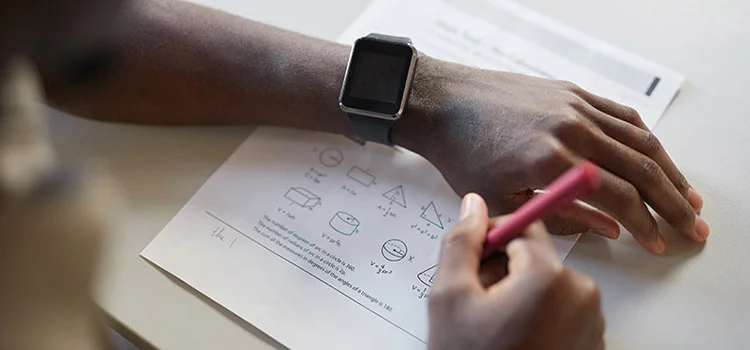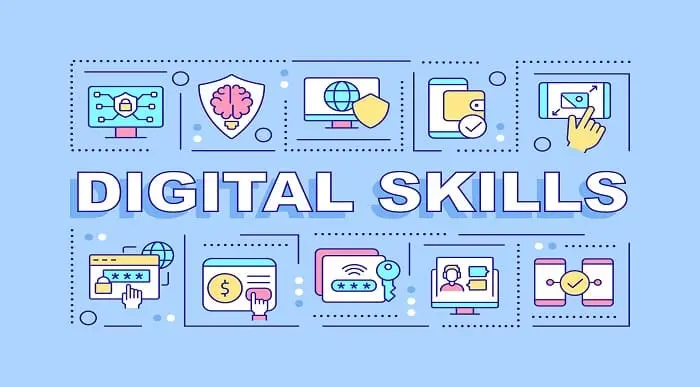Functional Skills
What is Functional Skills Maths Level 2 Equivalent To? Qualification
If you are struggling with GCSE Maths or could not obtain the desired grade in GCSE, you can go for Functional Skills Maths. The Functional Skills Maths Level 2 will prepare you to ace in maths by providing practical examples. Unlike GCSE, Functional Skills courses enable you to apply your expertise in real-life contexts.
Having the qualification of this course, you can apply for jobs in careers such as teaching, nursing, the fire service and many more. You can also have access to higher education and enrol in an apprenticeship.
Read the blog thoroughly and explore everything about Level 2 Functional Skills Maths.
Table of Content
- Who should take Functional Skills Maths Level 2?
- What will you Learn in Functional Skills Maths Level 2?
- What is Functional Skills Maths Level 2 Equivalent to?
- What is the Pass Mark of Functional Skills Maths Level 2?
- How are Functional Skills Maths Assessed?
- How long does it take to complete Functional Skills Maths Level 2?
- How to Pass Functional Skills Maths Level 2:
- Is Functional Skills Maths easier than GCSE?
- Conclusion:
- What to Read Next:
Who should take Functional Skills Maths Level 2?
Functional Skills Level 2 maths is ideal for people who could not obtain a grade 4 or a C at GCSE and want to resit for the exam. Besides, it can also be done as a standalone qualification.
This qualification is particularly suitable for-
- Apprenticeships
- Traineeships
- T-Levels
- Study Program
 Are you looking dog training course?
Are you looking dog training course?
What will you Learn in Functional Skills Maths Level 2?
Functional Skills Maths Level 2 courses will introduce you to all the valuable mathematical knowledge like handling data, using numbers, understanding measures, shapes and so on.
Handling information and data:
- Graphs– You will learn how data can be represented on different types of graphs and charts, such as bar charts, pie charts and so on. You will also learn about the correlation of graphs along with two-way frequency tables.
- Averages- You will explore mean, median, mode, range, and frequency distribution and how to estimate and use these different aspects to compare two different sets of data.
- Probability- You will explore probability and will look at the examples of probability statements as well as independent and dependent events and will also cover the tree diagrams.
Using numbers:
- Positive and negative numbers- Reading, writing, ordering, comparing positive and negative numbers of different sizes and calculating numbers, different strategies to check their answers, including elements of estimation and approximation.
- Decimals, addition, subtraction, multiplication, division– Ordering, approximating and comparing decimals, as well as adding, subtracting, multiplying and dividing decimals up to three decimal places.
- Fractions- Using proper and improper fractions, how to compare and simplify fractions and express one number as a fraction of another number.
Percentages-The methods used to find percentages, reverse percentages and calculate percentage change.
- Converting between fractions, decimals and percentages- Identifying and knowing the relationship between fractions, decimals and percentages.
- Ratio, inverse and direct proportions- using and simplifying ratios, exploring inverse and direct proportions.
Understanding measures, shapes and space:
- Converting between measurements- Different units of measurements used in maths, calculating in metric and converting between different units of weight and conversion between Celsius and Fahrenheit.
- Perimeter, area and volume– Methods of calculating perimeter, area and volume.
- Shapes- Symmetry, rotational symmetry, coordinates, angles, as well as a wide variety of shapes like 2D and 3D and how to calculate the circumference of shapes.
- Scale-How to gauge measurements from scales, how to create scales, scale drawings and maps.
- Time- Measuring speed, distance, and time and the relationship between them.
- Money- Budgeting, conversion and exchange rates of money.
Check out this blog to know if can you go to university with functional skills.
What is Functional Skills Maths Level 2 Equivalent to?
The Functional Skills Maths at Level 2 is equivalent to a GCSE Grade C or Grade 4 in Maths.
What is the Pass Mark of Functional Skills Maths Level 2?
According to OCR, For Functional Skills Maths Level 2, “Both Level 1 and Level 2 assessments are designed to have a pass mark in the range of 32-37 marks.”
How are Functional Skills Maths Assessed?
Functional Skills are assessed by a ‘pass’ or ‘fail’. The exams can be either paper-based or computer-based. Maths has one online exam. Level 2 Maths is externally evaluated and carried out in exam conditions at the assessment centre.
How long does it take to complete Functional Skills Maths Level 2?
It can take as little as six weeks to complete your Functional Skills Maths Level 2 course and pass the test which is much quicker than GCSE Maths. In the case of GCSE, you might have to wait 6 months to sit your GCSE Maths exams.

Functional Skills English Level 1 Online Course with Exam
- Accredited Courses
- Tutor Support Included
- 3 Installment Plan at checkout
- 14 Days Money Back Guarantee
How to Pass Functional Skills Maths Level 2:
Below are some tips and tricks to pass the functional skills maths exam.
- Use revision resources
- Find out the format of your exam; whether the exam would be paper-based or on-screen. Practice the past papers in that format.
- Create a revision timetable and the topics you need to revise.
- Use your time wisely during the exam.
- Read all the questions thoroughly and do not skim read.
- Skip the question you are struggling with and come back to it later. Do not waste time being stuck in that question.
- When you finish, go back and check your answers thoroughly.
- Most importantly, do not stress out. If you start stressing, your brain will struggle to process all the information.
Read a blog on functional skills pass rates and gain an extensive understanding.
Is Functional Skills Maths easier than GCSE?
Functional Skills qualifications are equivalent to GCSE, which can be a good option for those struggling with GCSE maths.
However, Functional Skills aren’t necessarily easier. You will still need to work hard and study. But, they can be better suited to students who are not capable of understanding or passing GCSE maths.
The problem with GCSE is that often the exam questions are not put into any context. Some people understand and perform better only when they can apply maths to a real-life situation.
Since in the Functional Skills Maths exam, questions are put into real-life context, students face less difficulty. The course covers practical topics like money and measurements that are relevant to workplaces and further education.
Conclusion:
The Functional Skills Mathematics Level 2 qualification demonstrates mathematical skills at the appropriate level enabling learners to apply mathematical thinking to solve problems successfully in the workplace and other real-life situations. If you desire to improve your mathematical skills to prosper in your career or for higher education, enrol in the Functional Skills Maths Level 2 course of Lead Academy and start learning at your own pace.
What to Read Next:
- Functional Skills Practice Tests: Justify Your Skills Before Seating Exam
- What is NVQ Level 3 Equivalent to – Qualification and Equivalent Degree
- How to Become a Functional Skills Teacher – Step by Step Guide
- Essential Functional Skills Booklist for Study and Practice
- Triangles ABC and CDE are Mathematically Similar?
- How to Become Better at Math?
- Can You Go to University with Functional Skills?



 Are you looking dog training course?
Are you looking dog training course? 



